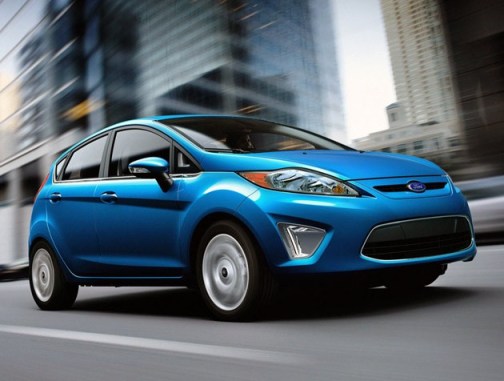 Ford has announced that a new report from the EPA shows that it has improved fuel economy of its fleet more than any other automaker since 2004. Combined car and truck fuel economy has improved nearly 20% in that time, almost twice as much as the nearest competitor.
Ford has announced that a new report from the EPA shows that it has improved fuel economy of its fleet more than any other automaker since 2004. Combined car and truck fuel economy has improved nearly 20% in that time, almost twice as much as the nearest competitor.
The most interesting part of the fuel economy improvement plans for automotive enthusiasts is that Ford is not increasing fuel economy at the cost of performance. Ford is actually boosting performance in some of its vehicles and still saving fuel. One good example is the new V6 engine making its way into the 2011 Ford Mustang. The new V6 produces 305 hp — only a few ponies shy of the output of the current V8 — and still achieves 30mpg on the highway.
Ford has also introduced a line of EcoBoost engines that offer very impressive performance while sipping fuel. Ford gives most of the credit for its fuel economy improvements to the Ford Escape and Mercury Mariner hybrids. Moving forward, Ford expects the Fusion and Milan hybrids along with the EcoBoost four cylinder engines to help it improve its fuel economy ratings even more.
“2009 has been a breakthrough year for Ford, leading with the launch of EcoBoost and the introduction of new products that will result in further improvement in 2010,” said Sue Cischke, group vice president, Sustainability, Environment and Safety Engineering. “Our commitment to delivering affordable, fuel-efficient vehicles for millions has never been stronger or better demonstrated.”
Ford points out that fuel economy in its 2010 Fusion improved 21% compared to the 2009 model going from 28 mpg to 34 mpg. Ford is looking to EcoBoost for big gains in its future lineup. The Blue Oval will offer EcoBoost engines in 90% of its fleet by 2013 and 100% of its transmissions will be advanced six speed units. The 2011 Mustang V6 gets six-speed auto and manual transmissions and the 2011 Mustang GT is rumored to get the same transmission options along with a 412 hp 5.0-liter V8 engine.
Ford was the first U.S. automaker to post a profit with the poor economy.


